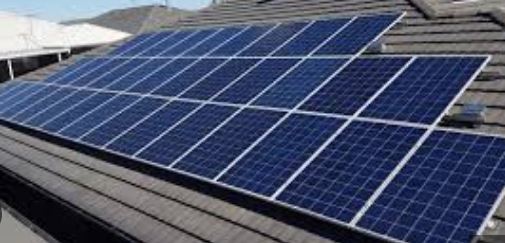1. Introduction: Understanding the Need for Solar Systems
In an era marked by environmental awareness and the quest for sustainable energy sources, the need for solar systems has become increasingly apparent. From reducing carbon footprints to combating rising energy costs, solar systems offer a multitude of benefits for both individuals and society as a whole. In this guest post, we delve into the various reasons why solar systems are needed, exploring their environmental, economic, and social significance.
2. Environmental Imperatives
2.1. Mitigating Climate Change
One of the primary drivers behind the need for solar systems need is the urgent need to mitigate climate change. The burning of fossil fuels for energy production is the leading cause of greenhouse gas emissions, which contribute to global warming and climate instability. By harnessing solar energy, we can significantly reduce our reliance on fossil fuels and lower our carbon emissions, thereby helping to slow the pace of climate change.
2.2. Preserving Natural Resources
In addition to reducing carbon emissions, solar systems also help preserve precious natural resources such as water and land. Unlike traditional energy sources like coal or natural gas, solar energy generation requires minimal water consumption and does not involve destructive mining or drilling operations. By shifting towards solar power, we can protect ecosystems, safeguard biodiversity, and promote sustainable land use practices.
3. Economic Advantages
3.1. Lowering Energy Costs
Another compelling reason for the adoption of solar systems is their potential to lower energy costs for consumers. As the cost of solar technology continues to decline and efficiency improves, solar power has become increasingly competitive with traditional grid electricity. By generating their own electricity from solar panels, homeowners and businesses can reduce their reliance on utility companies and lock in long-term savings on their energy bills.
3.2. Creating Jobs and Economic Growth
The solar industry also plays a crucial role in driving economic growth and creating jobs in communities around the world. From manufacturing and installation to maintenance and research, the solar sector employs a diverse workforce with a wide range of skills and expertise. By investing in solar energy infrastructure and supporting policies that promote renewable energy development, governments can stimulate job creation and spur economic activity.
4. Energy Security and Independence
4.1. Enhancing Energy Security
Solar systems contribute to energy security by diversifying the sources of electricity generation and reducing dependence on imported fossil fuels. Unlike oil or gas, which are subject to price fluctuations and geopolitical tensions, solar energy is abundant, reliable, and locally available in most regions. By investing in solar infrastructure, countries can enhance their energy resilience and reduce their vulnerability to supply disruptions.
4.2. Empowering Communities
Solar systems also have the potential to empower communities and individuals by providing them with access to clean, reliable energy sources. In rural and remote areas with limited or unreliable grid infrastructure, off-grid solar systems can provide a lifeline for communities, powering homes, schools, hospitals, and businesses. By democratizing access to energy, solar systems can improve living standards, enhance education and healthcare outcomes, and foster economic development.
5. Social and Environmental Justice
5.1. Promoting Equity and Inclusion
Solar systems have the power to promote social and environmental justice by addressing energy poverty and inequity. In many parts of the world, marginalized communities disproportionately bear the burden of pollution and environmental degradation associated with fossil fuel extraction and combustion. By expanding access to solar energy, we can ensure that all communities have the opportunity to benefit from clean, sustainable power while reducing disparities in energy access and affordability.
5.2. Fostering Resilience and Adaptation
In the face of climate change and its associated impacts, solar systems can also play a critical role in building resilience and adaptation capacity. By decentralizing energy production and distribution, solar systems can help communities weather extreme weather events, natural disasters, and other climate-related challenges. From providing backup power during blackouts to supporting disaster relief efforts, solar energy infrastructure can strengthen community resilience and reduce vulnerability to climate risks.
6. Conclusion: Embracing the Promise of Solar Systems
In conclusion, the need for solar systems is clear and compelling, driven by environmental, economic, and social imperatives. By harnessing the power of the sun, we can mitigate climate change, preserve natural resources, lower energy costs, enhance energy security, and promote equity and inclusion. As solar technology continues to advance and become more accessible, the potential for solar systems to transform our energy landscape and build a more sustainable future is greater than ever. By embracing the promise of solar systems and investing in renewable energy solutions, we can create a brighter, cleaner, and more equitable world for generations to come.





Comments